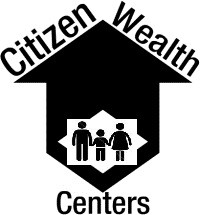Here is Justice O’Connor, speaking for herself before the annual meeting of the American Bar Association in 1991:
While lawyers have much we can be proud of, we also have a great deal to be ashamed of in terms of how we are responding to the needs of people who can’t afford to pay for our services….There has probably never been a wider gulf between the need for legal services and the availability of legal services….Every day, all over the country, people lose their homes or apartments when the law says they should keep them, and people can’t feed their children when the law says they should be able to feed them. People don’t know the rights they have; even if they know the rights they have, they don’t know how to enforce them. And it all has one cause – many people desperately need legal services, but can’t afford to pay.
She said that she found that “nearly one quarter of all poor people each year have a civil legal problem deserving a lawyer’s attention. But publicly funded attorneys can handle only twelve percent of the load. According to the ABA, eighty percent of poor people’s civil legal needs go unmet.” That amounts to tens of millions of Americans. Her basic message, grounded in numerous studies, is that when lawyers represent these clients or when they can educate people about how they can invoke the law themselves, far fewer Americans would be evicted from their homes, fewer families would go hungry, fewer people in need would be denied benefits (like Medicaid), and fewer consumers would be gouged.
Justice O’Connor put forth three proposals. First make mandatory law school clinical programs to provide legal services for the poor under the supervision of professors. Second, educate the potential clients themselves. “Often, “O’Connor said, “knowing where to go, who to talk to, and which documents to bring will enable someone to solve their problem without the assistance of an attorney.” She added, “But our legislation has outpaced our education….This is the kind of project local bar associations are well-placed to organize.” Third, she strongly urged that “a significant percentage of the more than 750,000 practicing lawyers [now more than a million] take on pro bono work as a regular part of their practice.”
The Justice found the absence of legal services to be shocking, telling her audience of attorneys that “the legal needs of poor people involve the most basic necessities of life, needs like food and shelter.” Legal services are even more needed at the present time, with more poor families and more homeowners in the midst of foreclosures.
****
Obviously, it didn’t happen. And, it’s not going to happen, which is why we have come together to organize Citizen Wealth Centers.
